 The
The /am filesystems contain test email folders and INBOXes.
The /am filesystems were retired in October of 2004.
Becker was retired in March of 2002.
Mail was migrated from the /mailer filesystems to the /cg filesystems
in March of 2005.
The Becker cluster was retired in March of 2002.
The EP deskmail servers were retired in January of 2005. All mail was
migrated to the CG deskmail servers.
Y2K testing is going at a pretty frantic pace as you can see.
The Hawking cluster was retired in May of 2001.
The mango galaxy is a test system for our new accounting changes.
The mailer filesystems were migrated to the cg filesystems in March
of 2005.
The mango galaxy is a test system for our new accounting changes.
Note: This particular filesystem replicates all data 2x, so all
numbers should be divided in half to calculate “actual
available storage space” in the filesystem.
Note: The 2x replication factor has already been incorporated into this graph.
The files on the
The remaining clinicians on the /rx filesystems were merged with the
rest of the homer users on the /rc filesystems in January of 2005.
The anonymous FTP service was retired in July of 2005. That was the
last service that had user files on a /syxx filesystem.
These filesystems were retired in December of 2003. User files were
moved to the
These files have been migrated to the /hw and /dw filesystems.
 The
The /bk filesystems contain becker home directories.
 The
The /bp filesystems contain student email folders and INBOXes.
 The /cf00 filesystem holds files for the Stat Lab folk.
The /cf00 filesystem holds files for the Stat Lab folk.
 The
The /cg filesystems contain email folders and INBOXes.
Currently in a pre-production test mode, these filesystems are served
by Linux servers.
 The
The /cl01 filesystem contains system files for the becker
cluster.
 The
The /da filesystems contain the home directory for the
students on the dante cluster.
 The
The /dd filesystem contains the home directories for the
daffy cluster.
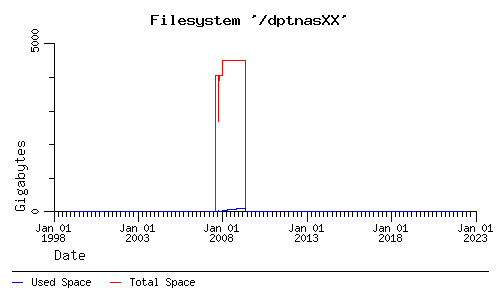 Tvnas is the Isilon server for UWTV stuff.
Tvnas is the Isilon server for UWTV stuff.
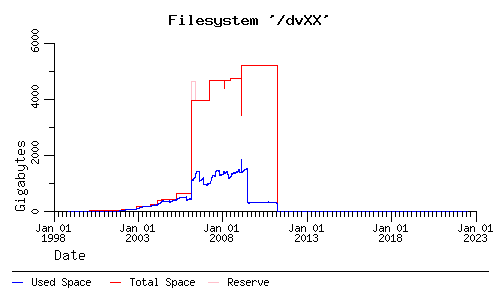 The
The /dv filesystems are for student streaming-video files.
 The
The /dw filesystems contain the web pages and files for
the students on dante.
 The
The /ep filesystems contain the email folders and INBOXes for
the clinicians on the Aagaard cluster.
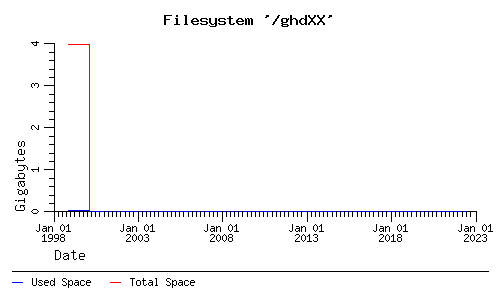 The
The /ghd filesystem(s) contain the home directories
for the groundhog cluster -- Y2K test system.
 The
The /hh filesystem is for streaming-video files for courses
and departments.
 The
The /hk filesystems contain the hawking (DOIT) home directories.
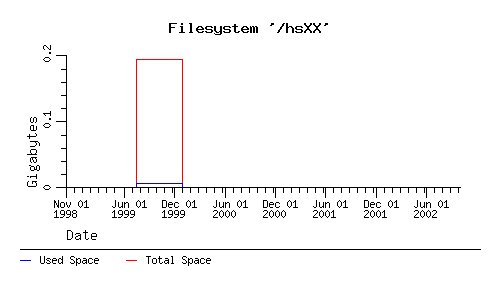 The
The /hs filesystems contain the home directories for the
"mango galaxy" users.
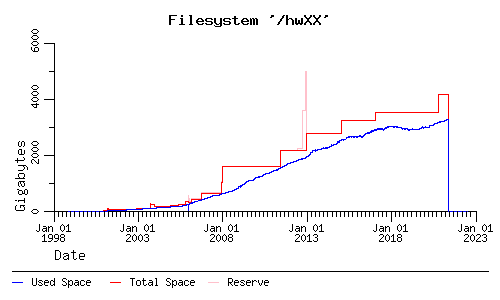 The
The /hw filesystems contain the web pages and files for the
homer cluster.
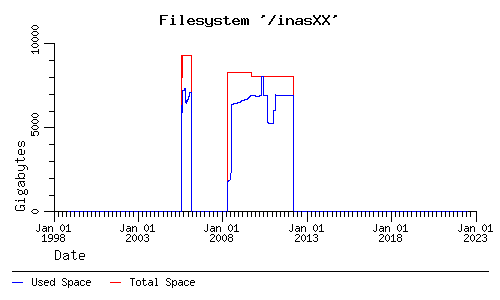 Inas is the Isilon server for Digital Well et al.
Inas is the Isilon server for Digital Well et al.
 The
The /jr filesystems contain MyUW.net email folders and INBOXes.
 The
The /kd filesystems on the Kodaks hold nebula home directories.
 The
The /kg filesystems on the Kodaks hold nebula group directories.
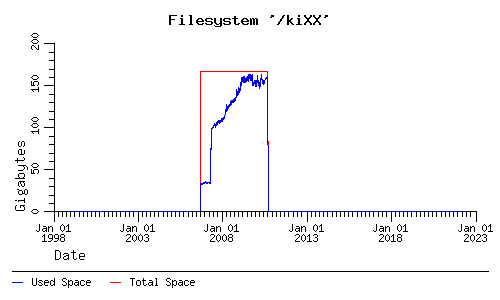 The
The /ki filesystems on the Kodaks hold web "info" directories.
 The
The /ku filesystems on the Kodaks hold nebula user directories.
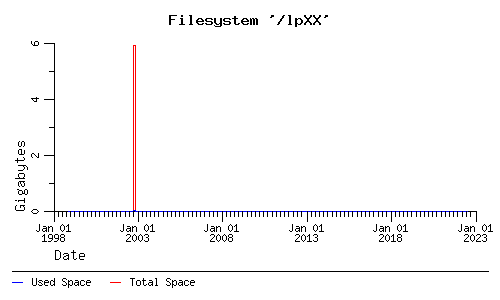 The
The /lp filesystems contain email folders and INBOXes.
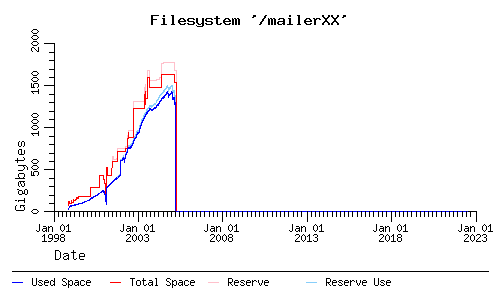 The
The /mailer filesystems hold the mail INBOXes and folders for
the homer cluster.
 The
The /mg filesystems contain the INBOX and folders for the
"mango galaxy" users.
 The
The /mh filesystems contain the home directories for the
MyUW.net users.
 The
The /mr filesystems contain the backup snapshots for deskmail users.
 The
The /mw filesystems contain the web pages and files for
the MyUW.net people.
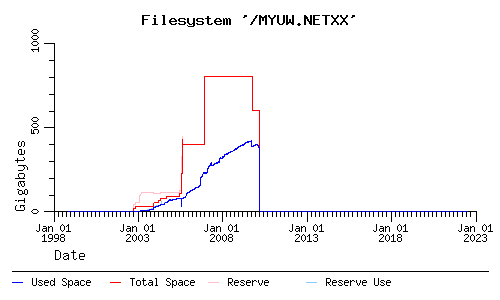 This graph shows the aggregate usage and allocation for the
MyUW.net cluster.
This graph shows the aggregate usage and allocation for the
MyUW.net cluster.
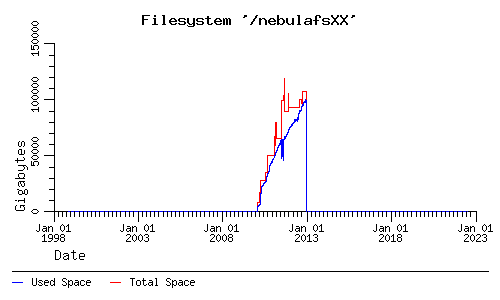 The
The /nebulafs filesystem on Bronica holds nebula user directories.
 The
The /n0 filesystem contains old NeXT Lab files.
 The
The /nu filesystem is a pseudo duplicate of the /nebulafs/user filesystem.
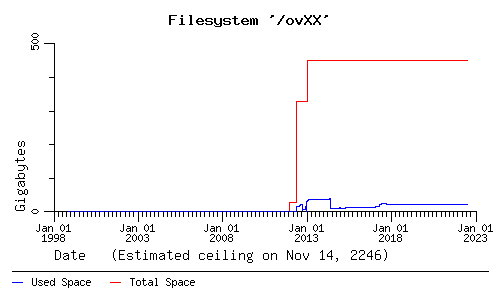 The
The /ov filesystems are non-NFS native filesystems
on the Ovid system(s) for MySQL databases and such that might have
better performance if the network is out of the picture.
 The
The /quill filesystem is for streaming-video files.
/quill filesystems were moved to
the newer /hh filesystems in late November 2002.
 The
The /rc filesystems contain the home directories for the
homer users.
 The
The /rd filesystems [will] contain the home directories for the red users.
 The
The /rx filesystems contain the home directories for the
clinicians on the Aagaard cluster.
 The
The /sb filesystems contain the daily snapshots of
deskmail users' email.
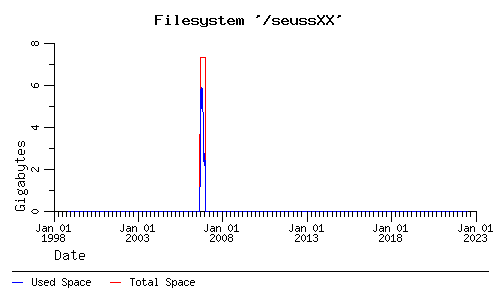 The
The /seuss02 filesystem isn't really a filesystem. It's
a temporary place for D2D backup testing.
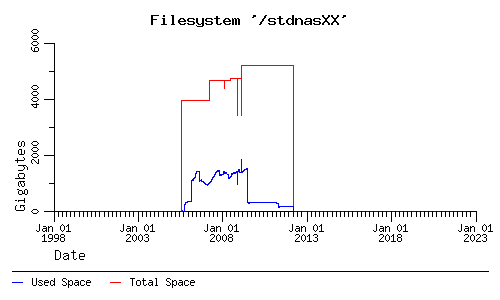 Stdnas is the Isilon server for student "webfiles".
Stdnas is the Isilon server for student "webfiles".
 The
The /sy filesystems contain system product files and email
for the mead and goodall clusters.
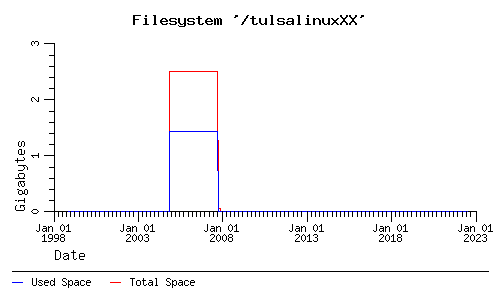 The
The /tulsa filesystems are used for system development.
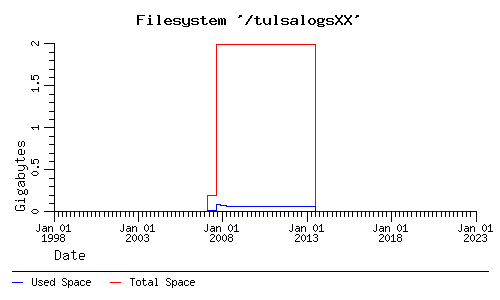 The
The /tulsa filesystems are used for system development.
 The
The /tulsa filesystems are used for system development.
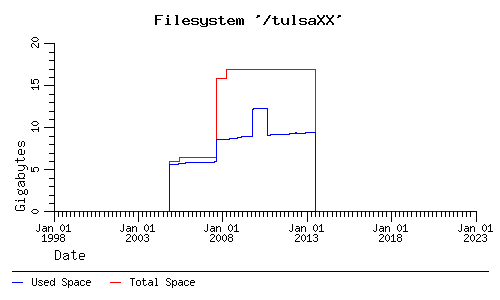 The
The /tulsa filesystems are used for system development.
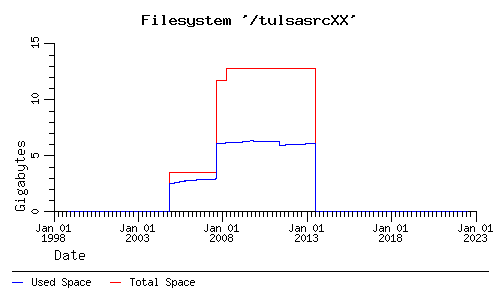 The
The /tulsa filesystems are used for system development.
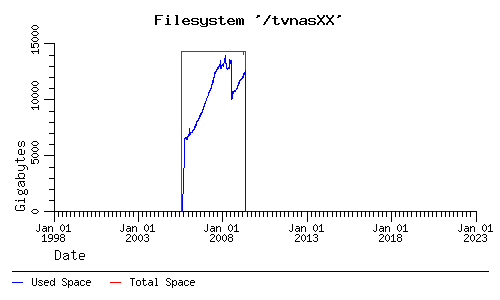 Tvnas is the Isilon server for UWTV stuff.
Tvnas is the Isilon server for UWTV stuff.
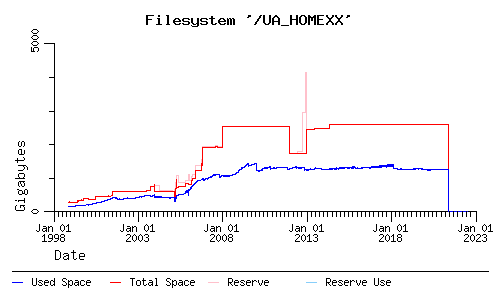 All the non-deskmail, non-web home directory filesystems combined.
All the non-deskmail, non-web home directory filesystems combined.
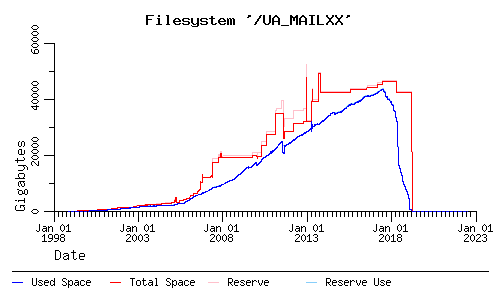 All the various deskmail filesystems combined.
All the various deskmail filesystems combined.
 The
The /ua filesystems contain the home directories for the
mead and goodall clusters.
/rc or /da filesystems.
 This represents the aggregate of all the Uniform Access user
filesystems, including deskmail, web, streaming media and
other files.
This represents the aggregate of all the Uniform Access user
filesystems, including deskmail, web, streaming media and
other files.
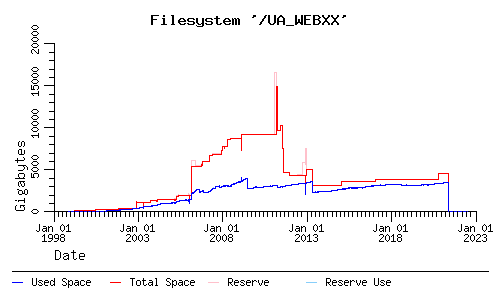 All the various web and streaming media filesystems combined.
All the various web and streaming media filesystems combined.
 The
The /ud filesystems contain the Central File Service for Users, aka "U Drive", directories.
 The
The /ux01 filesystem contains home directories for certain
system support staff.
 The
The /ve filesystems are non-NFS native filesystems
on the Vergil system(s) for MySQL databases and such that might have
better performance if the network is out of the picture.
 The
The /ws filesystems are for student webfiles (they're actually
a double duplication of stdnas and should be ignored for now on these charts).
 The
The /wt filesystems are for test webfile services.
 The
The /www filesystems contain web pages for the weber web
servers.
Ken Lowe
Email --
ken@u.washington.edu
Web --
http://staff.washington.edu/krl/